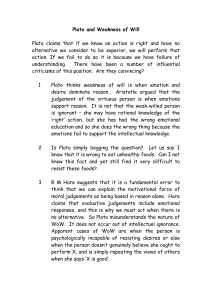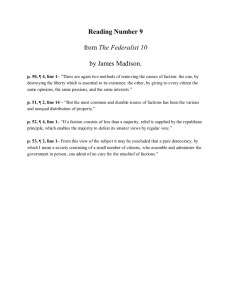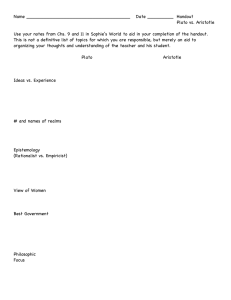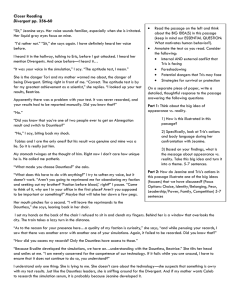Then, I said, Thrasymachus, there is no one in any... or enjoins what is for his own interest, but always...
advertisement
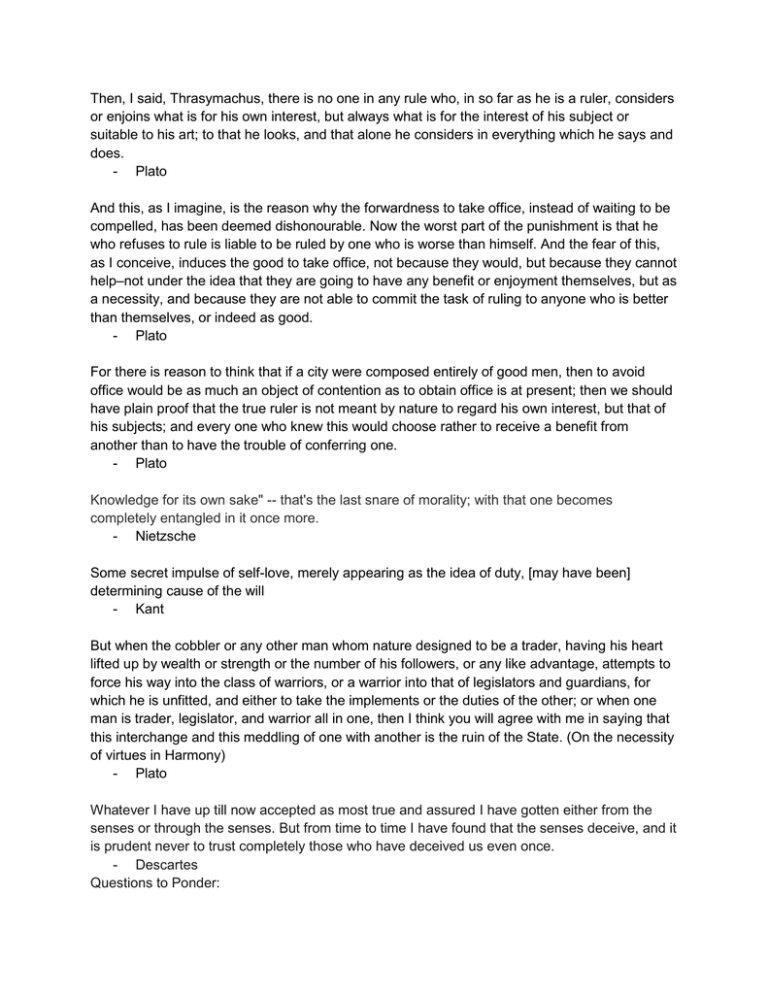
Then, I said, Thrasymachus, there is no one in any rule who, in so far as he is a ruler, considers or enjoins what is for his own interest, but always what is for the interest of his subject or suitable to his art; to that he looks, and that alone he considers in everything which he says and does. - Plato And this, as I imagine, is the reason why the forwardness to take office, instead of waiting to be compelled, has been deemed dishonourable. Now the worst part of the punishment is that he who refuses to rule is liable to be ruled by one who is worse than himself. And the fear of this, as I conceive, induces the good to take office, not because they would, but because they cannot help–not under the idea that they are going to have any benefit or enjoyment themselves, but as a necessity, and because they are not able to commit the task of ruling to anyone who is better than themselves, or indeed as good. - Plato For there is reason to think that if a city were composed entirely of good men, then to avoid office would be as much an object of contention as to obtain office is at present; then we should have plain proof that the true ruler is not meant by nature to regard his own interest, but that of his subjects; and every one who knew this would choose rather to receive a benefit from another than to have the trouble of conferring one. - Plato Knowledge for its own sake" -- that's the last snare of morality; with that one becomes completely entangled in it once more. - Nietzsche Some secret impulse of self-love, merely appearing as the idea of duty, [may have been] determining cause of the will - Kant But when the cobbler or any other man whom nature designed to be a trader, having his heart lifted up by wealth or strength or the number of his followers, or any like advantage, attempts to force his way into the class of warriors, or a warrior into that of legislators and guardians, for which he is unfitted, and either to take the implements or the duties of the other; or when one man is trader, legislator, and warrior all in one, then I think you will agree with me in saying that this interchange and this meddling of one with another is the ruin of the State. (On the necessity of virtues in Harmony) - Plato Whatever I have up till now accepted as most true and assured I have gotten either from the senses or through the senses. But from time to time I have found that the senses deceive, and it is prudent never to trust completely those who have deceived us even once. - Descartes Questions to Ponder: - Where does the power lie in the city before the attack? Is there a difference between ruling and having power? - Are the dauntless leaders morally culpable for the actions of their dauntless? Are the the dauntless themselves culpable? - Is this city in accordance with Plato’s republic? - Which faction aligns with, or is closest to the philosopher kings? Is there one comparable? - Is there an argument to be made that Jeanine Matthews was acting in accordance with Utilitarianism? - Why would a large divergent population be dangerous? Would it be dangerous at all? If so, to whom? - In a similar society where divergent’s are not hunted down, should they have their own faction? If so what would their role be? If not, should they have to choose a faction? Which way would be most beneficial? - Do kids have any moral obligation to their parents in this society? Should Tris and Caleb have stayed with their parents so as not to hurt their reputation? - It is possible to access through reason human nature in a society such as this one? Is it human nature to organize is this way or must this have been imposed? - In today’s society, would divergence be normal or inherent loyalty to a faction?


